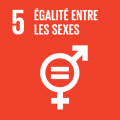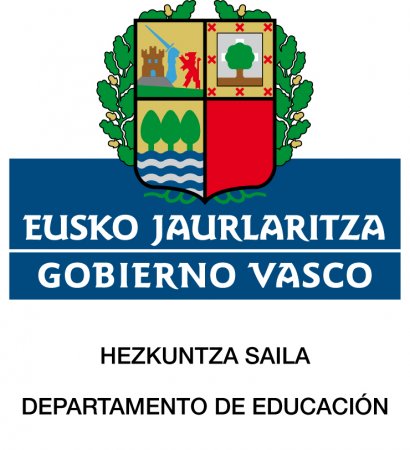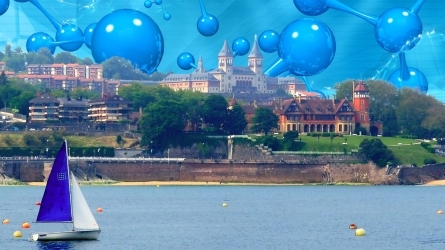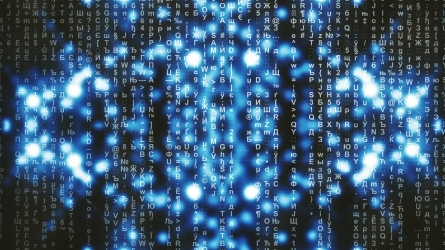
Emozioak eta barne-elkarrizketa ikasgelan: nola eragiten digute?
Description
Emotions play a fundamental role in learning contexts. Thus, their identification and effective regulation becomes even more necessary in a changing and unpredictable socio-historical moment, both for students and teachers. Therefore, the main objective of the course is to deepen in emotional intelligence. To this end, on the one hand, the theories related to emotions will be addressed, in order to raise awareness of their influence and presence in the classroom. On the other hand, self-talk, a key phenomenon in the identification and management of emotions, will be approached. The presence of emotions and self-talk in the classroom, as well as in everyday life, will be made visible, offering ideas to work around them.
Objectives
Work on emotional identification and reflect on their presence in the classroom.
Approach to the main classifications of emotions.
Raise awareness of our awareness of emotions.
To place emotions in the current curriculum framework of the Basque Autonomous Community.
Approach to the phenomenon of internal dialogue to regulate and manage emotional intelligence.
Raise awareness of the internal dialogue about the impact on our life.
Analysis of the usefulness of internal dialogue in the academic context.
Activity directed to
- University student
- Teachers
Program
26-06-2023
Erregistroa
Presentation by the Director of the activity
- Nerea Larruzea Urkixo | ISEI/IVEI eta UPV/EHU - Teknikari espezialista eta UPV/EHUko irakaslea
- Amaia de la Fuente Gaztañaga | UPV/EHU - UPV/EHUko irakaslea
“Taldeak martxan jarriz: mini-erronkaren aurkezpena“
- Amaia de la Fuente Gaztañaga | ISEI-IVEI eta UPV/EHU - Teknikari espezialista eta UPV/EHUko irakaslea
- Nerea Larruzea Urkixo | UPV/EHU - UPV/EHUko irakaslea
“Zer dira emozioak? Nola eragiten digute? Hurbilketa kontzeptuala“
- Amaia de la Fuente Gaztañaga | ISEI/IVEI eta UPV/EHU - Teknikari espezialista eta UPV/EHUko irakaslea
- Nerea Larruzea Urkixo | UPV/EHU - UPV/EHUko irakaslea
Break
“Adimen emozionala esparru kurrikularrean kokatuz: nondik gatoz eta nora goaz?“
- Amaia de la Fuente Gaztañaga | ISEI/IVEI eta UPV/EHU - Teknikari espezialista eta UPV/EHUko irakaslea
- Nerea Larruzea Urkixo | UPV/EHU - UPV/EHUko irakaslea
Mini-erronkara so! Hausnarketarako tartea
Synthesis
27-06-2023
Bigarren egunaren aurkezpena
“Barne-elkarrizketa, emozioen erregulaziorako giltza“
- Amaia de la Fuente Gaztañaga | ISEI/IVEI eta UPV/EHU - Teknikari espezialista eta UPV/EHUko irakaslea
- Nerea Larruzea Urkixo | UPV/EHU - UPV/EHUko irakaslea
“Barne-elkarrizketa ikasgelan“
- Nerea Larruzea Urkixo | ISEI/IVEI eta UPV/EHU - Teknikari espezialista eta UPV/EHUko irakaslea
- Amaia de la Fuente Gaztañaga | UPV/EHU - UPV/EHUko irakaslea
Break
Elkarlanerako tartea: Landutakoa mini-erronkan txertatuz
Partaideen hitza: mini-erronken aurkezpen laburrak
Ikastaroaren balorazioa eta itxiera
Directors

Nerea Larruzea Urkixo
Euskal Herriko Unibertsitatea
Doctora en Psicodidáctica: Psicología de la Educación y Didácticas Específicas por la Universidad del País Vasco (UPV/EHU). Actualmente, es profesora en el Departamento de Psicología Evolutiva y de la Educación de la misma universidad, labor que combina con su trabajo como técnica especialista en el Instituto Vasco de Evaluación e Investigación Educativa (ISEI-IVEI). Sus líneas de investigación se centran en el autodiálogo, la regulación emocional y el aprendizaje autorregulado, así como la influencia del género en dichas variables. Ha diseñado e impartido formaciones en este campo para profesorado de distintas etapas educativas.
Speakers

Amaia de la Fuente Gaztañaga
Euskal Herriko Unibertsitatea
Doctora en Psicodidáctica: Psicología de la Educación y Didácticas Específicas y Graduada en Educación Social por la Universidad del País Vasco (UPV/EHU). Actualmente, es profesora en el Departamento de Psicología Evolutiva y de la Educación de la misma universidad en la cual imparte clases en el Grado de Educación Primaria y Educación Social. Ha publicado artículos científicos relacionados principalmente con habilidades socioemocionales y su impacto en la salud del alumnado, al igual que se ha centrado en la influencia del género en las mismas. También ha participado en congresos internacionales y nacionales. Ha diseñado diferentes cursos formativos para el profesorado en activo con el objetivo de trabajar las habilidades socioemocionales en el contexto escolar.
Registration fees
| Face-to-face | Until 31-05-2023 | Until 26-06-2023 |
|---|---|---|
| 25,00 EUR | 59,00 EUR | |
| - | 84,00 EUR | |
| - | 71,00 EUR | |
| - | 59,00 EUR | |
| - | 71,00 EUR | |
| - | 71,00 EUR | |
| - | 71,00 EUR | |
| - | 71,00 EUR |
Venue
Miramar Palace
Pº de Miraconcha nº 48. Donostia / San Sebastián
Gipuzkoa
Miramar Palace
Pº de Miraconcha nº 48. Donostia / San Sebastián
Gipuzkoa
Sustainable development goals
Agenda 2030 is the new international development agenda approved in September 2015 by the United Nations. This agenda aims to be an instrument to favour sustainable human development all over the planet, and its main pillars are the eradication of poverty, a reduction in equality and vulnerability and fostering sustainability. It is a unique opportunity to transform the world up to 2030 and guarantee human rights for all.

4 - Quality education
Guarantee quality education that is inclusive and equitable and foster opportunities for lifelong learning for everyone. Key issues: free-of-charge, equitable and quality education, access to higher education and training on an equal basis, education for sustainable development, suitable education centres for persons with disabilities, and safe, non-violent and efficient learning environments.
More information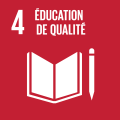
5 - Gender equality
Achieve gender equality and empower all women and young girls. Key issues: the end of all forms of discrimination and violence, recognition of unpaid care and domestic work, shared responsibility, equal opportunities, full and effective participation in reproductive rights, equal rights vis-à-vis economic resources, access to land and other assets and ownership.
More information